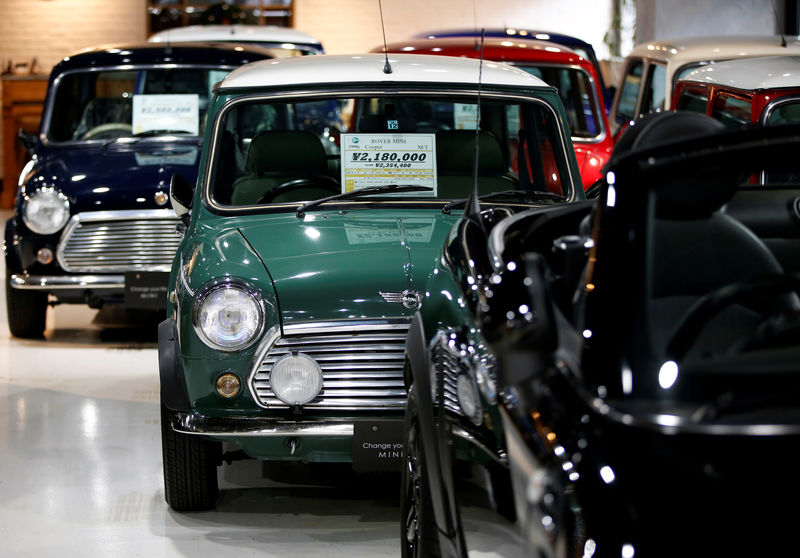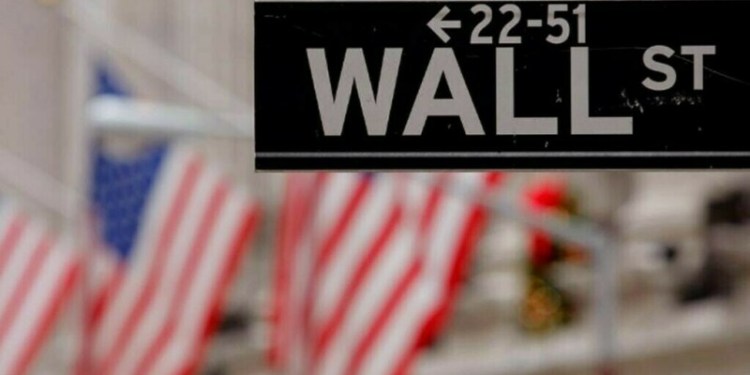 © Reuters. Rover Mini Cooper, Rover Mini Mayfair and Rover Mini Paul Smith cars are displayed at the showroom of the “iR”, a used Mini car dealer, in Tokyo
© Reuters. Rover Mini Cooper, Rover Mini Mayfair and Rover Mini Paul Smith cars are displayed at the showroom of the “iR”, a used Mini car dealer, in TokyoTOKYO (Reuters) – Japan’s ruling coalition lawmakers said on Friday they will give tax breaks to car buyers to offset the impact of a sales tax hike planned for next year, amid the looming threat of steep tariffs on its auto exports to the United States.
In its annual tax code revisions, the ruling bloc also approved tax cuts on housing mortgages out of fear an increase in the sales tax from 8 percent to 10 percent planned for October 2019, could cause a slump in sales of big-ticket items.
A series of tax breaks underscore Prime Minister Shinzo Abe’s will to spend big to avoid a repeat of the economic downturn caused by the previous sales tax hike in April 2014, as he is putting fiscal reform on the backburner.
Abe has twice postponed the sales tax hike since the last increase from 5 percent in 2014. But he has vowed to go ahead this time by taking “more than enough steps” to cushion the tax hike impact and to level off a rush of demand before the sales tax hike and a pullback thereafter.
The auto tax breaks target those who buy cars after the sales tax hike kicks in October 2019. Automobile tax, which is imposed on car owners, will be cut by 4,500 yen ($39.92) a unit. That is expected to reduce tax revenue by 130 billion yen.
Alternative funding sources will be tapped by narrowing down types of low-emission cars qualified for ‘eco-car’ tax-cuts. The fuel consumption tax, which consumers pay when buying cars, will be cut by 1 percent for one year from October 2019.
Tax breaks on mortgages will be extended from the current 10-year period to 13 years for those who enter a home purchase contract and move into their new housing from October 2019 to the end of 2020.
Tax breaks for car buyers could ease the pain for Japan’s automakers, already under stress from U.S. President Donald Trump’s tariff threats.
Friday’s tax-code revision comes a few days after U.S. President Donald Trump threatened to impose steep tariffs on its imports of Japanese and European cars, saying that it would depend on trade negotiations with them.
Japan’s biggest automakers and components suppliers fear they could take a severe hit if Washington follows through on proposals to hike tariffs on autos and auto parts to 25 percent.
Abe and Trump agreed in September to start trade talks in an arrangement that appeared, temporarily at least, to protect Japanese automakers from further tariffs on their exports, which make up about two-thirds of Japan’s $69 billion trade surplus with the United States.
On top of tax cuts, Abe’s government is considering large fiscal spending when it draws up its annual budget draft for next year later this month, which analysts expect to exceed 100 trillion yen for the first time.
The annual tax code revisions will be sent to parliament for approval by the next fiscal year starting in April 2019.
Fusion Media or anyone involved with Fusion Media will not accept any liability for loss or damage as a result of reliance on the information including data, quotes, charts and buy/sell signals contained within this website. Please be fully informed regarding the risks and costs associated with trading the financial markets, it is one of the riskiest investment forms possible.
Source: Investing.com

























